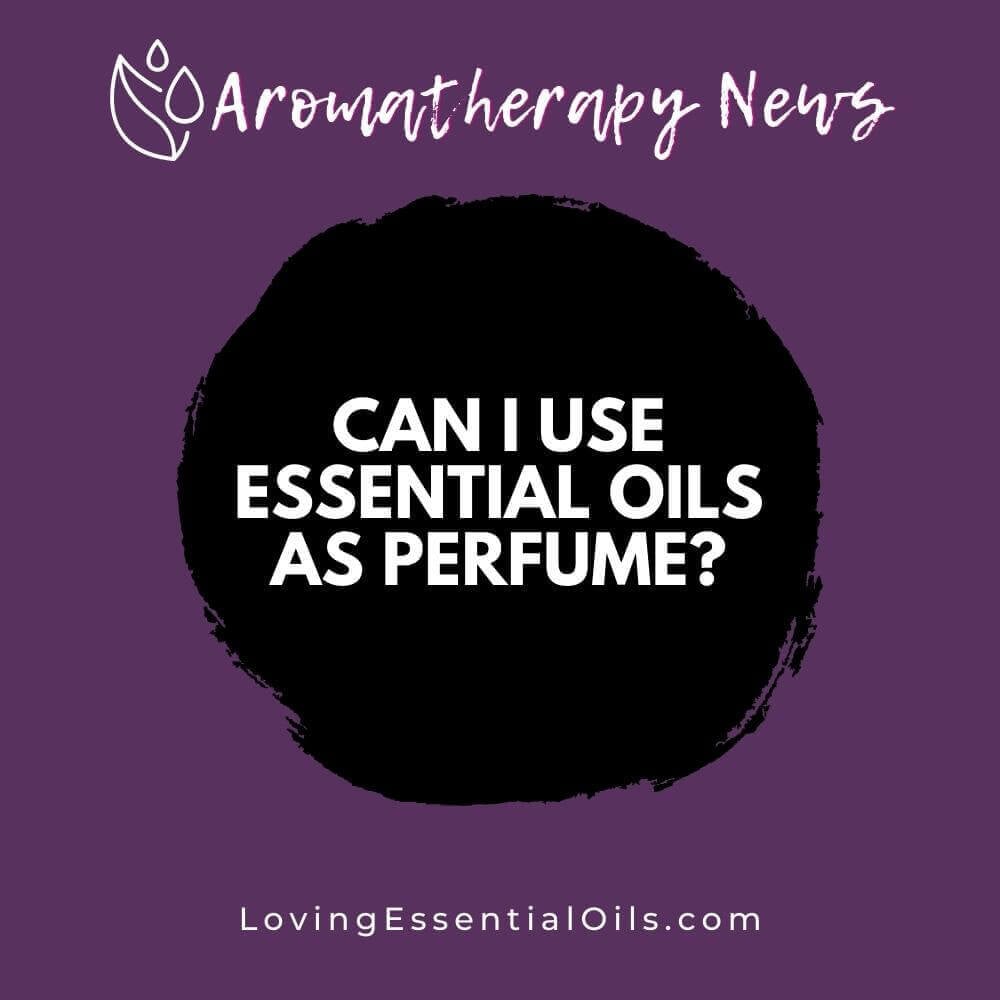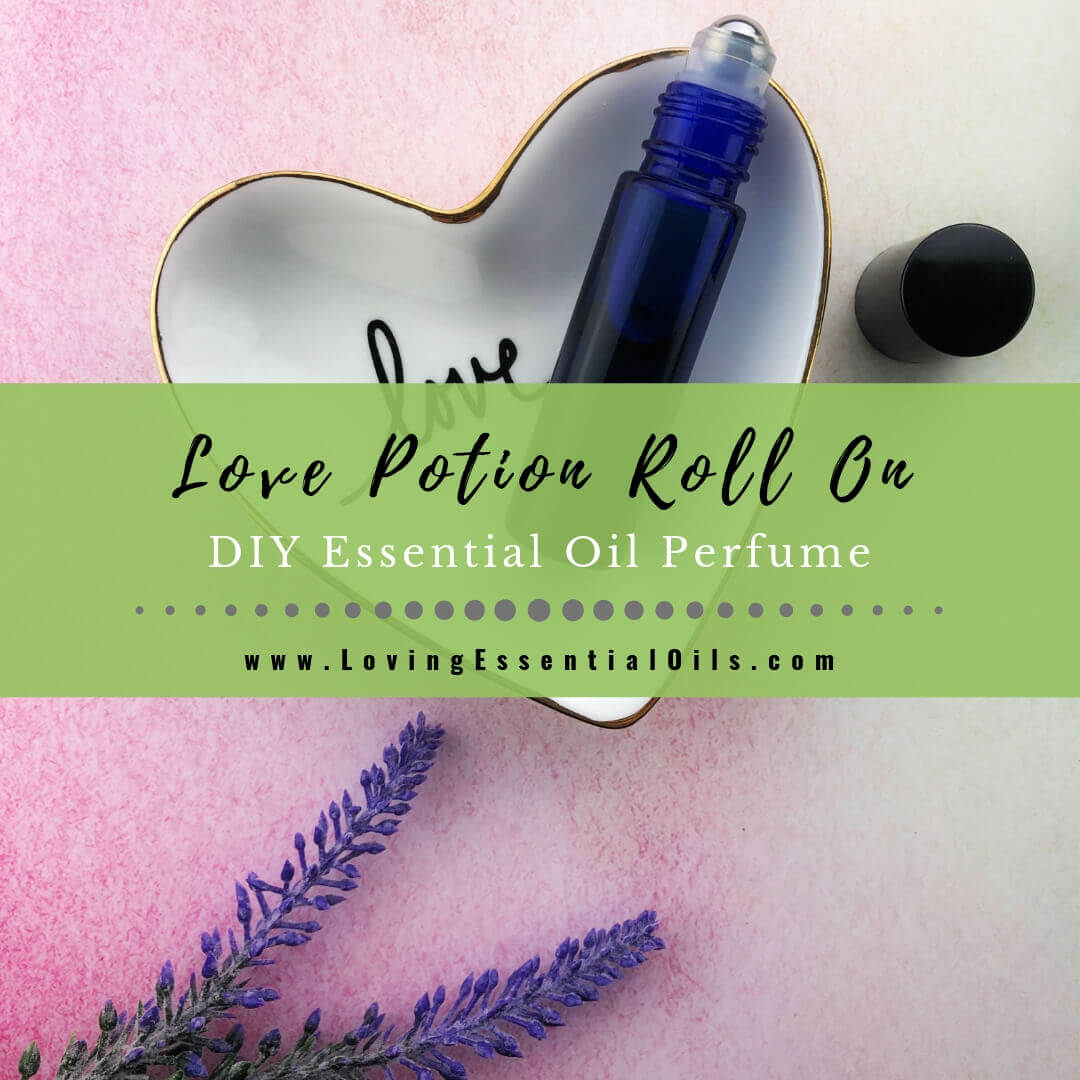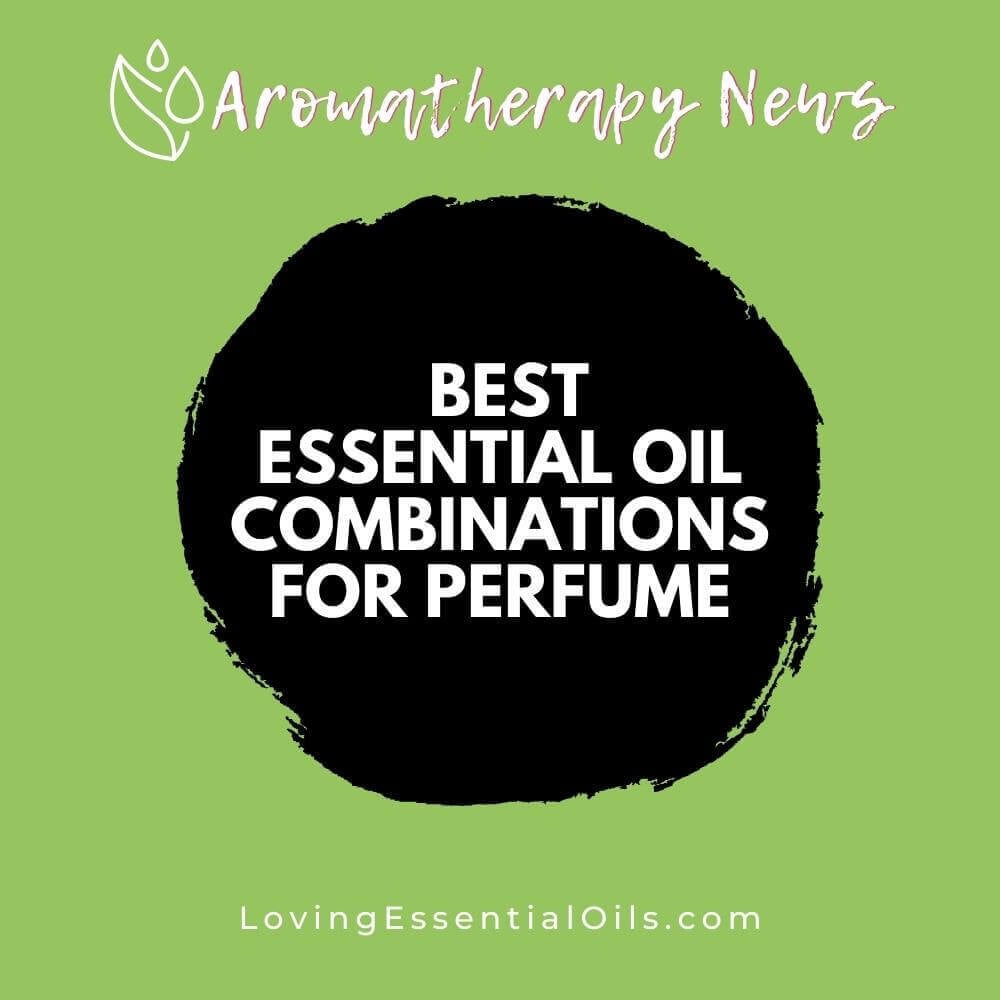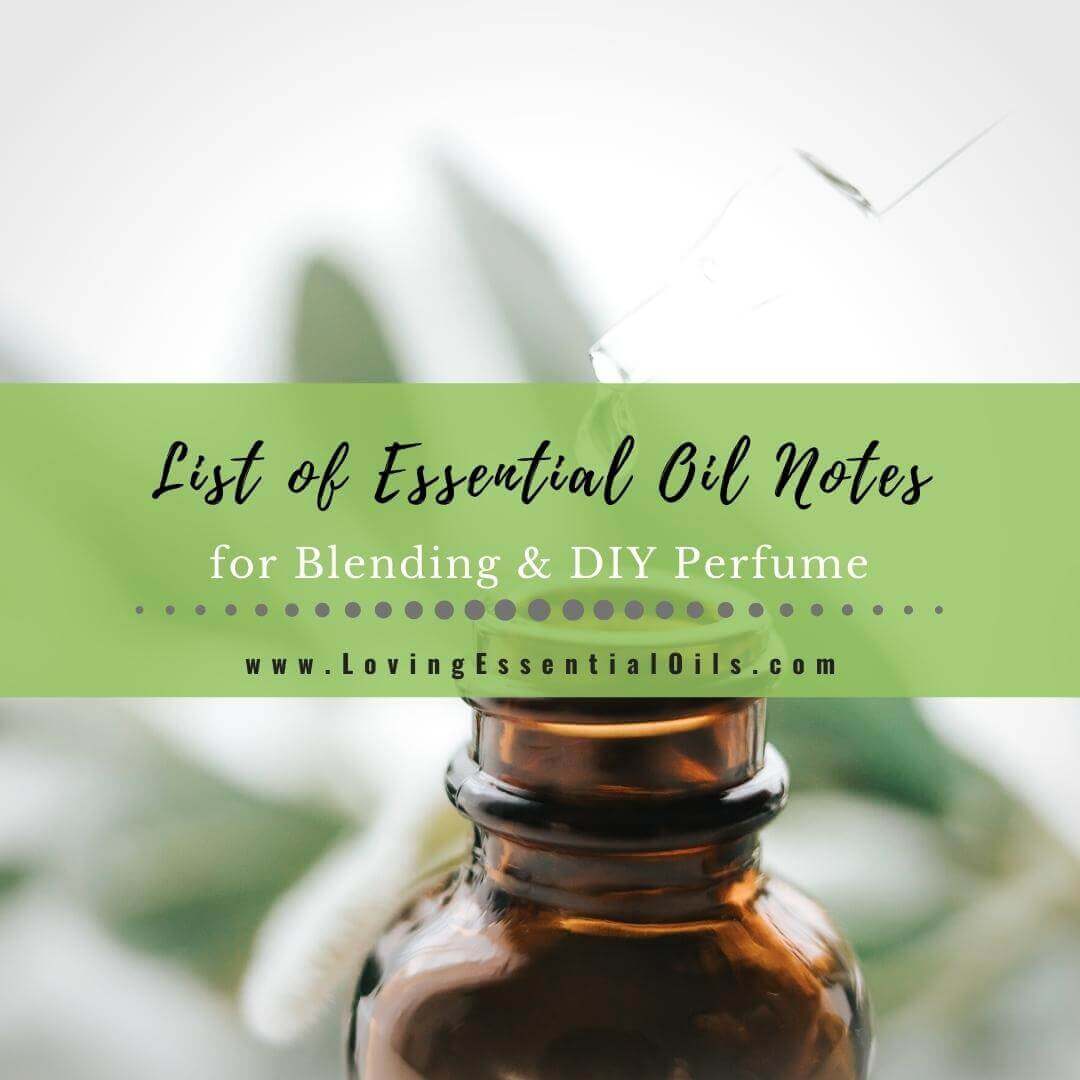Table of Contents
Many find essential oils appealing because of their pleasant scent, but can an essential oil that matches your personality and mood replace your regular perfume? Here, you will learn how to use essential oils as perfume.
Aromatic essential oils, like lavender, bergamot, lemon, or rose, are some of the best choices for creating your own perfume. These essential oils help to add a light, refreshing scent that gives you the perfect signature fragrance.
You will also find essential oils like orange and patchouli to have a pleasant smell for your perfume blend. Essential oils are much more subtle in scent than regular perfume, so essential oil blends let you find something you’ll truly love wearing day and night!
Can I Use Essential Oils as Perfume?
Yes, using essential oils as perfume is an increasingly popular way to get a long-lasting, captivating aroma from all-natural plant extracts. Use your favorite essential oil mix to create a fragrance that suits you, with the added benefit of being 100% pure and natural.
High-quality essential oils can maintain their scent on the skin for several hours and even potentially throughout the day.
Understanding how essential oils work best is important to make your own essential oil perfume. Mixing too many or too few essential oils or essential oils with incompatible scents can ruin the natural balance of your blend.
Also, you may not be able to find the right perfume if you buy it in a store. You can instead make your own perfume using your favorite essential oil.
Top 10 Essential Oils as Perfume
It is fun to make essential oil perfume. The possibilities are endless as far as essential oil combinations are concerned. Essential oil perfume is the perfect way to boost your scent naturally and subtly.
Some top choices stand out from the crowd for those looking for an essential oil-based option. The first five essential oils on the list are floral scents.
Here are the top 10 essential oils that can be used to make perfume:
1. Lavender Essential Oil
Although lavender is considered old-fashioned, its soothing and floral scent is still a great choice. A few drops of lavender essential oil can be applied to your neck to keep the fragrance throughout the day.
You can add this delicate oil to your pulse points throughout the day for an uplifting scent.

2. Rose Oil
Rose essential oil is a luxurious and romantic choice for homemade perfume. This oil, derived from rose petals, has a gentle floral aroma, and its scent lingers beautifully without being overpowering.
It also offers therapeutic benefits like calming the senses in times of stress or anxiety. When making your own rose essential oil perfume, it's best to use concentration ratios with other diluting oils to ensure balance and an ideal scent that won't dissipate too quickly.
With creative experimentation and trial-and-error mixing, you can easily create an alluring rose essential oil perfume that adds beauty to any occasion. The scent of roses will make you feel more beautiful in a romantic mood.
3. Jasmine Essential Oil
This unusual and sweet flower's sweet scent has uplifting properties. Apply Jasmine to your temples for a positive, mood-lifting fragrance that will help you stay positive all day.
4. Ylang Ylang Essential Oil
The Ylang Ylang flowers have been used in perfumes and aromatherapy for decades. The essential oil from them is equally versatile.
A few drops of Ylang Ylang can be applied to your wrists to create a natural, wonderful-smelling perfume. Make sure it is blended with a carrier oil too.
5. Neroli Essential Oil
Neroli oil, steam-distilled from bitter orange blossoms, has a sweet, citrusy, and floral scent. It can stimulate imagination, self-expression, love, and romance.

6. Geranium Essential Oil
Geranium essential oil is uplifting and brings balance, as well as florals, fruits, and hints of peppermint.
7. Patchouli Essential Oil
Patchouli essential oil is an ideal choice for anyone who enjoys crafting unique and beautiful scents. The oil offers a warm and earthy aroma to your perfume blend, with hints of musk, wood, and spice that can give any scent some added depth and richness.
To make, start off small by blending patchouli oil with other fragrances, then experiment with different concentrations and notes for an endless range of potential results.
8. Lemon Essential Oil
Lemon essential oil adds freshness with its zesty citrus aroma while also having cleansing and antiseptic benefits; this makes it perfect for summer when you feel hot and sweaty.
9. Juniper Essential Oil
Juniper essential oil has woodsy and citrus notes; its scent can be quite strong, so use it cautiously.
10. Bergamot Essential Oil
Lastly, bergamot essential oil has a warm citrus aroma. It provides stress relief and uplifting energy to help you through challenging situations.
Essential Oil Perfume Roll On
If you are making multiple bottles of essential oil perfumes at once, you should place an ingredient label to help you remember what fragrance it is.
Before finding the right combination, experiment with different base, middle, or top notes. Remember that top notes are more likely to evaporate than middle and base notes and that middle notes tend to evaporate slightly quicker than base notes.
Learn more about blending essential oil notes.
While the perfume can be used immediately, it's best to let it sit for a week or so to allow the oils to combine fully. This allows the fragrance to last longer and be more powerful when worn.

Benefits of Wearing Essential Oils as Perfume
There are several benefits to wearing essential oils as perfume.
First, essential oils are natural, so they are gentle on your skin and won't clog your pores like some synthetic perfumes can.
Second, essential oils are concentrated, so a little goes a long way. You only need a few drops of essential oil to enjoy its fragrance all day.
Third, essential oils can have therapeutic benefits. Lavender oil is known for its calming properties, while peppermint oil is invigorating.
Risks of Wearing Essential Oils as Perfume
If you're looking for an alternative to conventional perfume, essential oils might be worth considering. However, there are also some risks to consider before using essential oils as perfume.
Concentrated Plant Oils
First, because they are so concentrated, it's easy to use too much and end up with a headache-inducing scent that's overpowering instead of pleasant. Use the least amount of drops and dilute your essential oils with a carrier oil. Learn moire about what to do when essential oils don't work.
Prevent Skin Irritation
Second, not all essential oils are suitable for use on the skin. Some can cause irritation or allergic reactions, so it's important to do a patch test on a small area of skin before using any new essential oil.
It is best practice to dilute essential oils before applying them to the skin. Hot essential oils, like cinnamon and cassia, must be diluted well with a carrier oil prior to applying to pulse points and should never be dabbed on without diluting. Learn more about essential oil mistakes.
Store Essential Oils Properly
And third, essential oils can degrade quickly when exposed to sunlight or heat, so they need to be stored properly and used within six months to ensure they retain their potency.

Final Thoughts on Essential Oils for Perfume
Overall, there are both benefits and risks to consider before using essential oils as perfume. If you do decide to give it a try, be sure to start with just a few drops and see how your skin reacts before using more. And be sure to store your essential oils in a cool, dark place to extend their shelf life.
FAQs
How can essential oils be used as a natural perfume?
Essential oils can be used as a natural perfume by blending a few drops of your favorite oils with a carrier oil, such as jojoba or almond oil. This mixture can be applied to pulse points like the wrists and neck for a long-lasting, personal scent.
What are the benefits of using essential oils as perfume?
Using essential oils as perfume offers several benefits, including avoiding synthetic chemicals found in conventional perfumes. Additionally, essential oils can provide aromatherapy benefits, potentially enhancing mood and promoting relaxation.
Which essential oils are best for creating a personal fragrance?
Some popular essential oils for creating a personal fragrance include lavender for its calming qualities, citrus oils like orange or lemon for a fresh, uplifting scent, and sandalwood for a warm, earthy aroma. Experimenting with different combinations can help create a unique blend.
Are there any tips for blending essential oils for perfume?
When blending essential oils for perfume, start with a small amount of each oil to test the scent. Use a ratio of top, middle, and base notes to create a balanced fragrance, and allow the blend to sit for a few days to let the scents meld together before using.
Can essential oils as perfume last as long as traditional perfumes?
Essential oils may not last as long as traditional perfumes due to their natural volatility, but using a carrier oil can help prolong the scent. Reapplication throughout the day may be needed to maintain the fragrance.
Are there any precautions to consider when using essential oils as perfume?
When using essential oils as perfume, it's important to perform a patch test to ensure there's no skin irritation or allergic reaction. Some essential oils can also be photosensitive, so it's advisable to avoid direct sun exposure after application.





